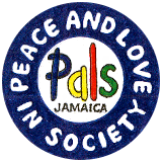WORKSHOPS FOR CORPORATE JAMAICA
Businesses are becoming much more interested in understanding workplace conflict, and knowing how conflict can be prevented and resolved is becoming increasingly important to all workers.
PALS’ programme for managing conflict at the workplace includes addressing challenges such as ineffective communication, inter-group hostility, a win-lose culture, and power struggles. Modules include:
PALS’ programme for managing conflict at the workplace includes addressing challenges such as ineffective communication, inter-group hostility, a win-lose culture, and power struggles. Modules include:
|
|
Here are three descriptions of modules.
“CONFLICT RESOLUTION FOR TEAMS”- ONE-DAY WORKSHOP OUTLINE
Rationale
In order to manage conflict effectively, team members need to be able to discuss issues openly and honestly. This is not always easy to do and requires developing norms that produce the right climate for managing conflict constructively.
The Workshop
This workshop is one in a series that is intended to meet the needs of teams that are expected to resolve their own personal as well as team conflicts and perhaps to train others to do so. The goal of the workshop series is to equip team members to recognise conflict, size up the situation, and keep it from becoming destructive to the team.
Individuals taking part in this workshop will examine their own concerns with conflict, their own individual styles, and the role conflict has played and is playing in the team. Ultimately, teams will benefit through reduced conflict, improved communication, and increased productivity.
The outline presented below is for a one-day workshop.
In order to manage conflict effectively, team members need to be able to discuss issues openly and honestly. This is not always easy to do and requires developing norms that produce the right climate for managing conflict constructively.
The Workshop
This workshop is one in a series that is intended to meet the needs of teams that are expected to resolve their own personal as well as team conflicts and perhaps to train others to do so. The goal of the workshop series is to equip team members to recognise conflict, size up the situation, and keep it from becoming destructive to the team.
Individuals taking part in this workshop will examine their own concerns with conflict, their own individual styles, and the role conflict has played and is playing in the team. Ultimately, teams will benefit through reduced conflict, improved communication, and increased productivity.
The outline presented below is for a one-day workshop.
Content:
|
|
|
“Dealing Positively with Resistance” - A Four-Hour Workshop for Managers and Supervisors
Rationale:
Many strategies are employed to deal with resistance, which is traditionally viewed as negative. These Some strategies like threatening or coercing; avoiding it; or discounting it may evoke positive responses, but only temporarily, as they rarely provide lasting solutions. Sometimes - such as in the case of threats and attempts to induce guilt - they may produce more and deeper resistance.
Workshop:
This workshop seeks to equip participants with the skills to work with resistance and to reduce needless resistance. It also seeks to foster the understanding that if handled appropriately, resistance can become an organisational asset to enhance rather than injure relationships.
Content:
This workshop can be extended beyond four hours to address other aspects of conflict and their relationship with resistance.
Many strategies are employed to deal with resistance, which is traditionally viewed as negative. These Some strategies like threatening or coercing; avoiding it; or discounting it may evoke positive responses, but only temporarily, as they rarely provide lasting solutions. Sometimes - such as in the case of threats and attempts to induce guilt - they may produce more and deeper resistance.
Workshop:
This workshop seeks to equip participants with the skills to work with resistance and to reduce needless resistance. It also seeks to foster the understanding that if handled appropriately, resistance can become an organisational asset to enhance rather than injure relationships.
Content:
- Examining basic assumptions regarding resistance.
- Analysing examples of situations of resistance at the workplace.
- A four-step positive approach.
- Exploring the reasons for resistance.
- Valuing differences.
This workshop can be extended beyond four hours to address other aspects of conflict and their relationship with resistance.
“GETTING PAST PERCEPTION” - A FOUR-HOUR WORKSHOP FOR MANAGERS
Rationale:
We all have a lens through which we see the world and one another. Everything we see, hear, and say goes through our filter on the way in and on the way out. These filters determine how we present and receive information. Changing perspective can improve the quality of the manager’s interactions with his team and other employees.
Workshop Outline:
This workshop explores the role perception plays in influencing the course of conflict. Participants will examine the factors that influence point of view. In simulated exercises, participants will learn to identify the central problem in conflict situations by listening to the points of view of the disputants. Opportunities will also be provided to practice seeing the point of view of others.
We all have a lens through which we see the world and one another. Everything we see, hear, and say goes through our filter on the way in and on the way out. These filters determine how we present and receive information. Changing perspective can improve the quality of the manager’s interactions with his team and other employees.
Workshop Outline:
This workshop explores the role perception plays in influencing the course of conflict. Participants will examine the factors that influence point of view. In simulated exercises, participants will learn to identify the central problem in conflict situations by listening to the points of view of the disputants. Opportunities will also be provided to practice seeing the point of view of others.
